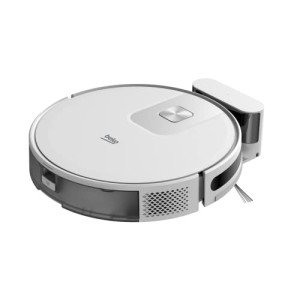Understanding Robot Vacuum Cleaner Prices: A Comprehensive Guide
Over the last few years, robot vacuum cleaners have actually transformed the way individuals clean their homes. Their ease of usage, benefit, and advanced technology have actually made them increasingly popular. However, with a myriad of models and features available, possible purchasers typically discover themselves asking a sixty-four-thousand-dollar question: What should I expect to spend for a robot vacuum? This article intends to clarify the costs connected with robot vacuum, aspects that influence their prices, and tips for finding the ideal gadget for your budget.
The Price Range of Robot Vacuum Cleaners
Robot vacuum cleaners can differ commonly in price. Here, we break down the common price variety for different categories:
| Category | Price Range | Description |
|---|---|---|
| Entry-Level | ₤ 100 - ₤ 250 | Basic functions, appropriate for small areas, very little smart technology. |
| Mid-Range | ₤ 250 - ₤ 500 | Enhanced cleaning abilities, much better navigation, some smart functions. |
| High-End | ₤ 500 - ₤ 1,000+ | Advanced mapping, effective suction, web connection, and app integration. |
Entry-Level Models
Affordable robot vacuums are perfect for those who require a fundamental cleaning tool without high-end features. They often handle hard floorings well but may battle with carpets and are usually less resilient.
Mid-Range Models
These vacuums typically come equipped with much better suction power and more intelligent navigation systems, making them ideal for bigger homes with combined flooring. Smart Robot in this variety deal Wi-Fi connectivity and mobile phone control.
High-End Models
High-end robot vacuums are designed for severe cleaning lovers. They usually use sophisticated mapping technology, powerful suction, and integrated cams for boosted navigation. Furthermore, numerous high-end designs enable vacuuming on a schedule and even have the ability to empty their dust bins immediately.
Elements Affecting Robot Vacuum Prices
Understanding the aspects that can affect the price of a robot vacuum can help customers make more informed purchasing choices. The following list describes some essential features that can affect price:
- Brand Reputation: Established brands normally bring a higher cost due to their credibility and dependable consumer assistance.
Cleaning Technology:
- Suction Power: More effective designs will be more expensive.
- Navigation Systems: Advanced designs with much better barrier detection and mapping abilities cost more.
- Smart Features: Models that provide connectivity to apps, voice control compatibility, and advanced scheduling choices tend to be priced greater.
- Battery Life: Longer-lasting batteries generally cause a greater price, as they enable the vacuum to tidy bigger areas without requiring to charge.
- Dustbin Size: Larger dustbins can be more hassle-free for customers, promoting a higher price point.
- Additional Features: Some vacuums provide mopping abilities, self-cleaning functions, and high-efficiency filters, which can increase their price.
Budget vs. Features: What to Consider
When purchasing a robot vacuum, it's important to weigh your budget versus the functions you most desire. Here are numerous factors to consider to assist you make an informed decision:
1. Evaluate Your Home's Needs
- Size of Space: Larger homes may benefit from more sophisticated vacuums that can cover more ground without regular charging.
- Floor Types: If your home includes a mix of carpet and tough floorings, decide for a vacuum developed for both.
2. Determine Desired Features
- Decide which functions are necessary for you, such as scheduling, app connectivity, and cleaning modes.
3. Price vs. Durability
- While a greater investment can yield longer-lasting models, it's worth considering lower-cost options if you're unpredictable about long-lasting use.
Regularly Asked Questions (FAQs)
Q1: Are robot vacuums worth the investment?
A1: If you lead a hectic way of life or have movement problems, a robot vacuum can conserve significant time and effort in cleaning, making them a worthwhile financial investment.
Q2: How frequently should I change a robot vacuum?
A2: Depending on the model and use, a robot vacuum generally lasts in between 3 to 5 years. High-end models might last longer with proper upkeep.
Q3: Can a robot vacuum totally change a traditional vacuum?
A3: While robot vacuums effectively handle everyday cleaning, they may not replace traditional vacuums for deep cleaning, particularly in multi-level homes or areas needing extensive care.
Q4: What is the average lifespan of a robot vacuum?
A4: The lifespan of robot vacuums varies by model, however most last in between 3-5 years with regular maintenance, like dustbin emptying and filter modifications.
Q5: Do robot vacuums deal with carpets?
A5: Yes, however the effectiveness will depend on the design. Higher-priced designs normally have better suction power to clean carpets effectively.
The market for robot vacuum cleaners varies, with designs to fit numerous budget plans and cleaning needs. Whether consumers are searching for a fundamental cleaning tool or a sophisticated gadget equipped with numerous smart functions, understanding the price varieties and aspects impacting expenses is essential. With mindful consideration of specific needs and financial restraints, potential buyers can find a robot vacuum that will boost their cleaning regular and offer long-lasting fulfillment.

